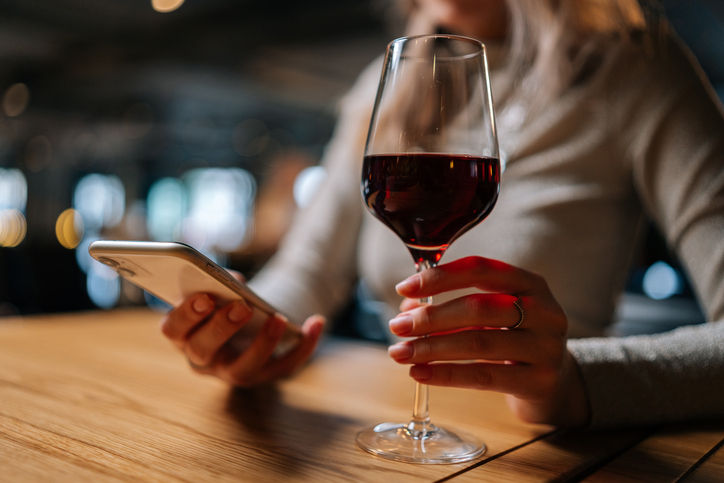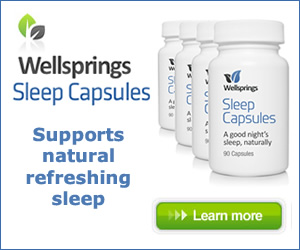All These Can Damage Your Sleep
Have you tried everything but still not sleeping? Could one of these factors be why?

I get almost as many queries about sleep as I do about hot flushes and night sweats, and unfortunately they do impact each other.
As many as 16 million UK adults are suffering from sleepless nights and a third (31%) say they have insomnia. Two thirds (67%) of UK adults suffer from disrupted sleepand nearly a quarter (23%) manage no more than five hours a night.
Britain is suffering an epidemic of sleeplessness, according to a book that takes a forensic look at the physical and mental consequences of failing to get a good night’s rest.
In The Business of Sleep, Prof Vicki Culpin, a clinical psychologist and expert in sleep and memory, takes aim at what Culpin describes as the “serious cognitive and health consequences of insufficient or poor quality sleep’.
Sadly poor sleep is a very common experience at menopause and despite the many reasons for it from anxiety, hormone surges, and increased bladder weakness which means getting up during the night, there may still be perhaps a reason you have not discovered.
Could it be one of these?
High levels of sleeplessness expose people to risks ranging from the common cold to depression, dementia and a possible stroke or heart attack.
The risk of obesity, cancer and diabetes is also increased and anyone who gets less then seven hours rest a night is at heightened risk of damage to their physical or mental health.
That coffee after dinner?
Caffeine does not affect everyone in the same way, but if you are sensitive it will definitely help keep you awake. Coffee, chocolate or caffeinated soft drinks will all have the same effect.
That of course is why many people drink it, and it’s fine in the morning – not so much at night.
Alcohol?
A “nightcap” is the perfect way to end the evening for many people but alcohol messes with deep sleep.
That is the type of sleep which is important for restfulness, memory, and other things your brain does.
It can make you drowsy enough to fall asleep, but it often wakes you up just a few hours later.
Technology?
Artificial light at night can be bad for sleep, but the “blue light” on smartphones and computers is particularly bad and television is too.
Shut down bright screens 2 to 3 hours before bedtime to get your body ready for snoozing and keep technology out of the bedroom where possible.
Afternoon nap?
It’s a great way to catch up if you are feeling sleep deprived, but if you take one after 3 p.m., it might affect you later on.
Again, not everyone is affected in the same way so see if stopping your naps and limiting coffee make a difference to your night time sleep.
If feeling dozy in the afternoon then try a splash of cold water on your face or a brisk walk as that can get your energy moving again.
Heat?
You do not need to tell a menopausal woman anything about being too hot, and you’ve probably noticed it’s harder to fall asleep when it’s hot.
But did you know it can hurt your sleep quality and high humidity can make it even worse. Keep your bedroom cool, have light bedding and nightwear to try and minimise both hot flushes that are hormonally based and the general effect of being too hot.
Late eater?
A little bit is fine, but a big meal or snack can supercharge your metabolism and speed up your brain, which could lead to indigestion and even nightmares.
But it doesn’t affect everyone the same way. If you’re a midnight snacker, keep a diary of what happens when you eat late to see if it bothers you.
Medication?
If you’re supposed to take your medication before bed, you should. But some prescription drugs can keep you from getting quality sleep, and some over-the-counter medications are loaded with stimulants.
Check with your doctor or pharmacist about what you’re taking, and when, before you change or stop any medication.
Exercise?
Exercise is usually good for your sleep. It can boost your mood, lessen anxiety, and wind you down at bedtime.
It also helps set a regular pattern of going to sleep and waking up around the same time each day (circadian rhythm).
BUT although exercise is good for your sleep, exercising too close to bedtime can ruin it. Again it doesn’t happen to everyone, but if that sounds like you, try to finish up your workout at least 3 hours before you go to bed.
Emotional issues?
You’re more likely to have sleep problems if you have untreated issues like anxiety, depression, or something else.
Or it could be a difficult period in your life generally, but whatever the cause, talk therapy, medication, or both might help.
Worry?
Are you a persistent worrier? Do you have frequent running thoughts such as ‘did I take the rubbish out, feed the dog, check petrol in the car’ and many others?
Thinking about these things can keep you up at night so writing a to-do list before you lie down might help as it ccan ease your mind and make it easier to fall asleep.
Keeping a pen and notepad next to your bed can be helpful if you think of something in the middle of the night.
Arguing?
Difficult or angry discussions late at night can trigger hormones that keep you up. Save tough talks for daylight hours, and try a soothing evening routine.
Read a book or listen to calming music. A hot bath or shower or some light stretching exercises might also help you wind down.
Water overload?
You want to drink enough to stay hydrated, but not so much that it interrupts your sleep with repeated bathroom breaks.
That’s why it’s best to spread the amount of water you drink over the course of the day. Don’t try to get your daily quote all down before bed.
Lying in?
It may seem like a good way to catch up on rest, but it doesn’t do much to make up for lost sleep as it can mess with your normal cycle of going to bed and waking up.
Keep regular hours, and you’ll probably snooze better and longer.
Helpful information:
There is little doubt that the hormone fluctuations at Menopause do interfere with many women’s sleep.
Getting hormone balance right will be one step, and Progesterone is certainly helpful at night as it is a relaxant, but your diet can play a part too so this article might also be of assistance.
https://anna.blog.wellsprings-health.com/best-5-foods-to-aid-sleep/



















